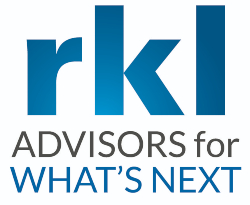Three Keys to Prepping a Family-Owned Business for a Successful Transition

Deciding to sell your family-owned business isn’t just a financial decision; it’s an emotional journey that involves your colleagues, your loved ones, and in many cases, your family’s legacy.
As you prepare the company for new ownership, the three to five years leading up to the transition require considerable planning. A recent study noted that 75 percent of owners regret selling their business within a year, and that often comes down to a lack of proper planning for the transition, life after transition, and how it will affect personal finances.
During this time of planning, you’ll need to thoughtfully consider what your legacy means to you and whether selling aligns with your personal goals and those of the organization. Here are three keys to effectively implementing the succession plan for your family-owned business.
1. Set Clear Business Goals for a Seamless Transition
A key factor for a successful transition is proactively planning your exit strategy instead of impulsively reacting to an unsolicited offer.
Every business and situation is unique, and as an owner, you should be able to communicate your goals for the transition clearly. These can be personal aspirations or business objectives that are largely shaped by your values, the nature of your business, and your vision for the future.
Whether you aim to maximize proceeds or plan for the business’s longevity under new ownership, defining these objectives early on in a written transition plan will help your succession planning advisors tailor the process to meet your specific needs.
2. Align Your Advisory Team Toward a Common Goal
For many owners of closely-held family businesses, 80 to 90 percent of their net worth is often tied up in the value of their company. Because of this tight connection between their personal and business finances, it makes sense for owners to involve their personal financial advisors in the transition.
Your personal advisor complements the expertise of your business advisor and can guide you through the complexities of the sale with your post-sale interests in mind. Coordinating the efforts of both advisors will help you understand the impact of the deal on your personal finances and ensure the proceeds align with your future goals. Very often, the business advisor spearheads the business transition, while the personal financial advisor helps you prepare for life after the sale.
Encouraging regular communication between key advisors is essential for meeting your needs both before and after the business is sold. Together, advisors can collaborate on enhancing value to a necessary level, addressing the tax implications of the sale, and protecting your personal assets throughout the transition.
3. Communicate the Transition Plan to Your Family and Team
Besides fostering productive communication among your advisory team, it’s also important to communicate your succession plans to your family members and employees.
A business transition can create uncertainty for both you and the people who matter most to you. In many cases, business owners prefer to keep their transition plans within a tight circle to stave off this uncertainty, but that’s not always the case. If you’ve created a long-standing culture of open and honest communication with your family and employees, you may feel more comfortable having broader discussions among these stakeholders.
Regardless of how, when, and with whom you choose to communicate your plans, maintaining normal business operations during this period will help mitigate anxiety and maintain employee morale. To that end, your advisory team plays a pivotal role. They support you by managing the complex steps of the transition process, ensuring the preservation of the business’s value while you concentrate on running day-to-day operations without distraction.
Paving the Way for a Smooth Transition
Selling a family-owned business involves navigating a complex mix of financial, emotional, and relational considerations. By proactively addressing these issues with an actionable written plan, clear goals, a unified advisory team, and open communication, you can pave the way for a successful transition.
Consulting with trusted experts from RKL Private Wealth, including valuation or M&A professionals and wealth advisors, is a critical step toward moving your business and its legacy forward. Contact RKL to learn how it can offer the expertise and support needed to ease the transition of your family-owned business and give you peace of mind when it matters most.
______________

Ryan P. Hurst, ASA, is a partner in RKL’s Business Consulting Services Group. He leads the firm’s suite of financially oriented consulting capabilities, including transaction advisory, valuation, litigation, succession planning, and forensic accounting. Hurst is also an in-demand transaction consultant specializing in mergers, acquisitions, succession planning, valuation, employee stock ownership plans, and strategic alternatives analyses.
Join Our Community
Never miss a Delaware County story!
"*" indicates required fields





















![95000-1023_ACJ_BannerAd[1]](https://delco.today/wp-content/uploads/sites/3/2023/03/95000-1023_ACJ_BannerAd1.jpg)











